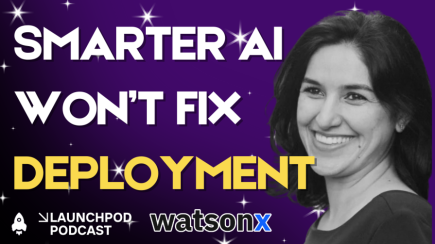Scrum is an agile project management approach that helps to manage complex projects by guiding teams to divide a project into small deliverables. Project work is divided into time-boxed events called ‘sprints’ during which the team works towards delivering an incremental value.

Initially the scrum framework was implemented in the software industry, but recently it’s also being adopted in other industries like financial services, construction, consulting, and manufacturing.
Within scrum, the scrum master plays a key role in facilitating the scrum process, helping the team stay focused, and delivering the assigned tasks. They remove obstacles for the team and ensure everyone works efficiently. In this guide, you will learn about how you can become a “Certified Scrum Master” and what the process looks like.
CSM refers to “Certified Scrum Master,” a professional certification provided by Scrum Alliance,
The Certified Scrum Master certification is an entry level certification focused on learning the scrum framework and understanding team accountabilities, scrum events, and artifacts.
Earning the CSM certification helps you to learn an agile way of working and demonstrates your ability to serve as a Scrum Master. Getting certified is a first step to enter the field of agile project management. The CSM certified individual has an understanding of scrum practices, events, iterative cycles to deliver a product catered to the needs of the users.
Scrum alliance offers three levels of CSM certifications:
Certified scrum master certification proves the knowledge gained on scrum methodology. Although the CSM is focused on the Scrum Master role and responsibilities in scrum, having obtained this certification is also a plus point for product managers. Being a CSM helps with:
Most of the organizations follow the scrum methodology to build products. Knowing the scrum events and artifacts helps product managers to understand their role in the scrum setting. Product managers are responsible for maintaining the product backlog for the engineering team and conveying the product requirements.
Grooming sessions where the product manager or product owner explains the user stories to the team and discusses product requirements is one of the key responsibilities of a product manager/owner. Product managers also ensure that the sprints are planned to deliver the most important items first.
As a Certified Scrum Master, product managers get a better understanding of dynamics between different roles in scrum, expected artifacts/documents to be delivered, and how the product will be built in iterations.
The scrum certification is an added qualification for product managers that helps in ensuring employers that the candidate they will hire has knowledge of scrum approach and is well versed with the scrum artifacts, events, and terminology. It’s helpful for aspiring product managers or individuals new to product management, as this certification validates their knowledge in agile project management.
Product managers are not responsible for project management, but knowing how the projects are managed using scrum approach is certainly crucial to carve out product roadmaps and backlog prioritization.
Now, we’ve covered the importance of CSM certifications, the next step is to look into how it can be obtained. Let’s dive into the mandatory requirements for taking this certification:
Anyone can start with the basic CSM certification offered by Scrum Alliance. It’s suited for anyone who is new to agile frameworks and wants to learn about the scrum methodology. Scrum can be applied across various industries and different types of teams, hence marketers, data analysts, HR and other professionals who are exploring to utilize agile can take the certification.
To be eligible for this certification, you need to go through a two-day training course conducted by a certified scrum trainer (CST) authorized by Scrum Alliance. During this live and interactive training, you will learn about scrum fundamentals, scrum roles and responsibilities, sprint planning, retrospectives, agile requirement analysis, prioritizing product backlogs, and core competencies for scrum master.
After successfully completing the two-day training, participants must pass an online exam to validate their understanding of scrum concepts. Participants are awarded with the Certified Scrum Master (CSM) designation after passing the exam. Here is an overview of what to expect in the exam:
It typically costs 400 dollars to get the CSM certification from the Scrum Alliance. Any additional attempt after free attempts costs 25 dollars. To keep the certification credentials beyond two years, an additional 100 dollars is required every two years.
Scrum Alliance is the most popular CSM certification provider in the agile community, but there are other providers that can be considered. Let us look into the details of two other providers and what they offer along with the cost of the certifications:
Scrum.org offers training courses and certifications based on a common competency model. Courses are conducted by Professional Scrum Trainers (PST) who are experienced scrum professionals.
The courses are curated with inputs from more than 350+ PST community members leveraging their expertise. However it is not mandatory to go through training courses before taking a certification exam.
It offers the following certifications:
The PSM I certification demonstrates knowledge of the scrum framework and scrum application. It’s recognized across industries to validate the fundamental knowledge of scrum. As a PSM I certified individual you will be well versed with scrum application and its ceremonies.
Cost of certification — 150 dollars per attempt
Validity — Doesn’t expire
Prerequisite — No need to complete any training
Questions — 80 multiple choice
Passing score — 85 percent
Exam duration — 60 minutes
PSM I is focused to validate knowledge on:
PSM II validates the ability of the candidate as a scrum master to apply scrum framework, support scrum teams, and solve complex problems in the real world. Advanced scrum knowledge and in-depth scrum master experience is required to complete this certification.
Cost of certification — 250 dollars per attempt
Validity — Doesn’t expire
Prerequisite — No need to complete any training
Questions — 30 multiple choice, multiple answer, true/false
Passing score — 85 percent
Exam duration — 90 minutes
PSM II validates the ability of the candidate as a scrum master to apply scrum framework in a variety of complex team and organizational situations. Extensive in-depth scrum master experience is required to complete this certification. PSM I and PSM II certifications are not required to attend this certification, but are highly recommended
Cost of certification — 500 dollars per attempt
Validity — Doesn’t expire
Prerequisite — No need to complete any training
Questions — Essay format 24 questions
Exam Duration — two and a half hours
PMI is the leading association for project management and has a global community of millions of project management professionals. Although known for project management certifications, it also offers two agile certifications:
DASM enables certified candidates to successfully lead agile teams. Its tool kit has hundreds of proven practices including scrum, kanban, SAFe. This course helps in understanding how to customize an approach to work based on the different real world situations.
Cost of certification — 499 dollars for non-members, 399 dollars for members
Prerequisite — Need to complete training (self paced/instructor led)
Questions — 50 multiple choice questions
Exam duration — 90 minutes
Validity — Expires in one year
This certification is available in Spanish and Portuguese.
DASSM enables experienced agile professionals to use a disciplined agile tool kit to optimize team work, work with allies in their organization, and solve advanced problems.
Cost of certification — 499 dollars for non-members, 399 dollars for members
Prerequisite — Needs to complete training (self paced/instructor led), 2 years of scrum master/product owner experience
Questions — 50 multiple choice questions
Exam duration — 90 minutes
Validity — Expires in one year
Scrum master certifications are helpful for gaining knowledge when you are entering into information technology, construction, manufacturing industries where agile is widely adopted.
Advanced level of scrum master certifications are very useful for individuals who have experience as a scrum master and want to gain more knowledge and credentials to move up in their career. Choosing the right level of certificate can provide you with enough knowledge and make you ready to grab available opportunities in the job market.
Featured image source: IconScout

LogRocket identifies friction points in the user experience so you can make informed decisions about product and design changes that must happen to hit your goals.
With LogRocket, you can understand the scope of the issues affecting your product and prioritize the changes that need to be made. LogRocket simplifies workflows by allowing Engineering, Product, UX, and Design teams to work from the same data as you, eliminating any confusion about what needs to be done.
Get your teams on the same page — try LogRocket today.

Rahul Chaudhari covers Amazon’s “customer backwards” approach and how he used it to unlock $500M of value via a homepage redesign.

A practical guide for PMs on using session replay safely. Learn what data to capture, how to mask PII, and balance UX insight with trust.

Maryam Ashoori, VP of Product and Engineering at IBM’s Watsonx platform, talks about the messy reality of enterprise AI deployment.

A product manager’s guide to deciding when automation is enough, when AI adds value, and how to make the tradeoffs intentionally.